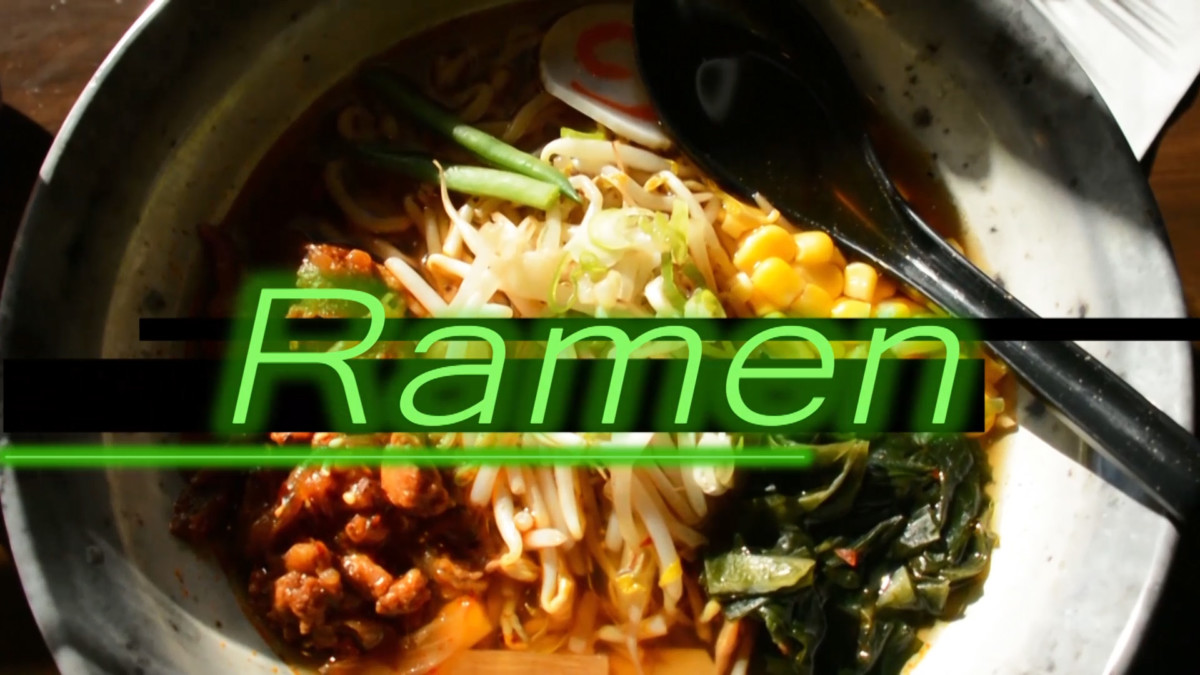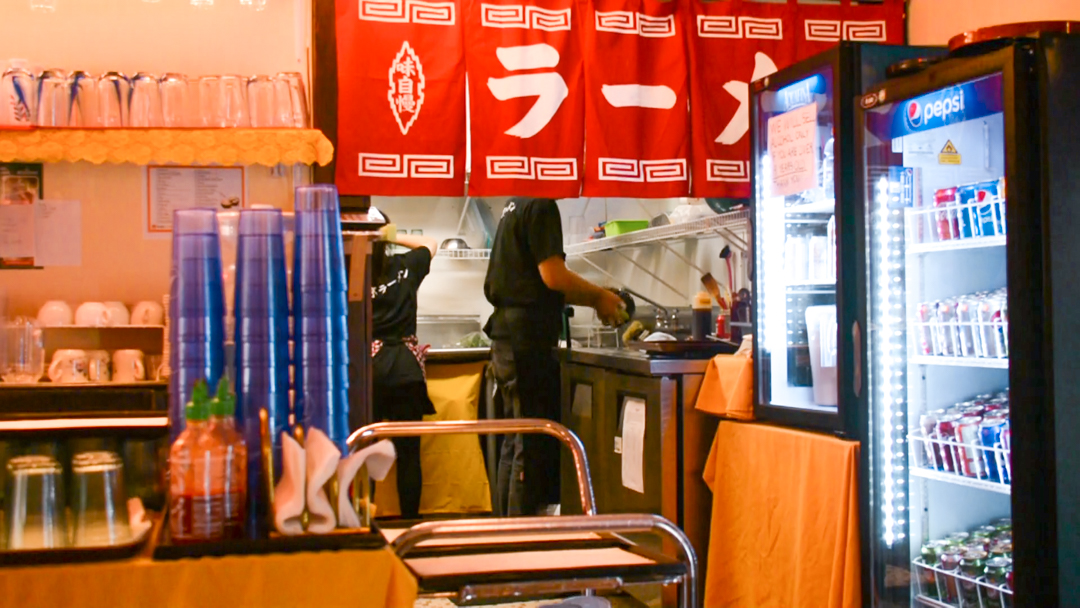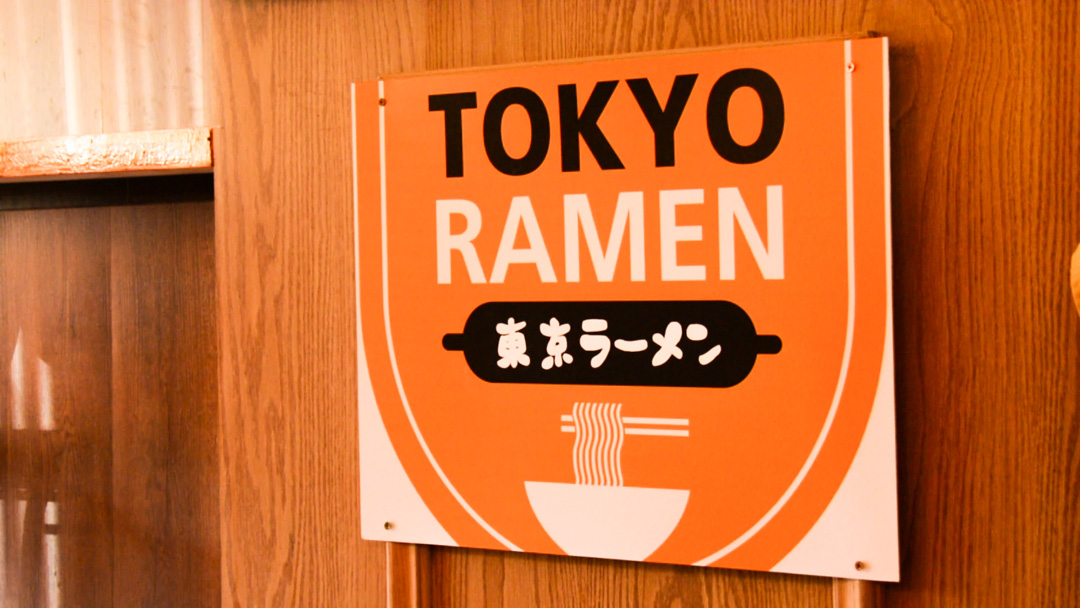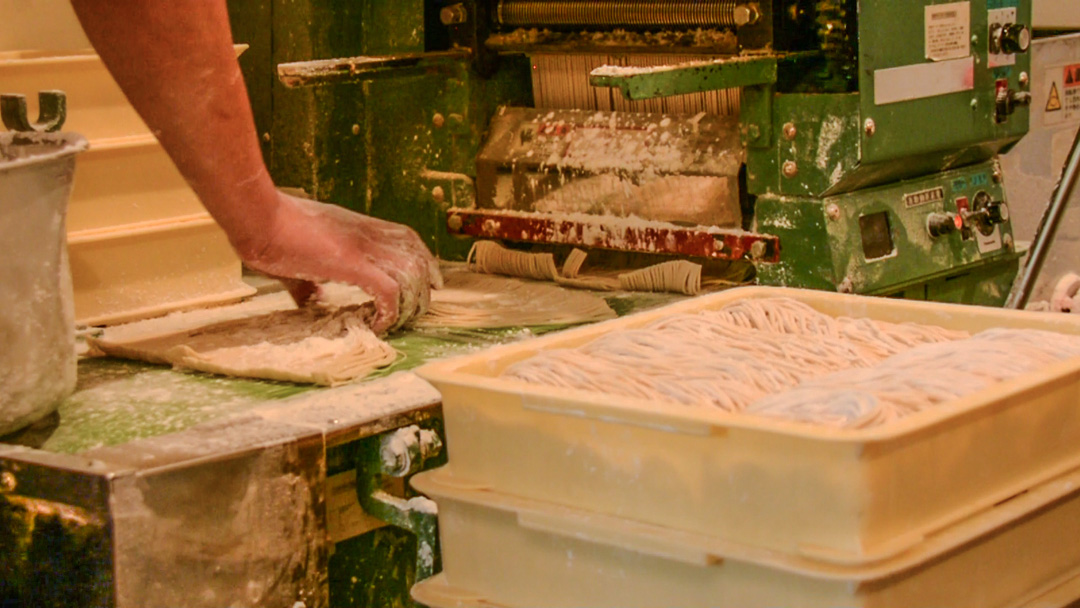
Correction: An earlier version of this story indicated the Kamazuka family has moved seven times within Japan and three in USA. In fact, Kamazukas haven’t moved that many times but spent seven years living in United States, and three years in Fredericton. We regret the error.
—————————————————————————————————————
Every morning at 7 a.m., Hirofumi Kamazuka, 50, wakes up and pours two cups of Columbian roast with the taste of hazelnut for himself and his wife. They only have an hour of alone time before they head to work at Tokyo Ramen where Hirofumi is the head chef and owner. His wife, Kyung Hee Choi, 56, is responsible for the rice dishes like katsudon at the restaurant.
“Coffee time is very important for us, to take a little bit [of time] to relax … then go to work,” Hirofumi said.
Their morning starts with putting on their uniforms: black pants, black shirt and a white Japanese headscarf. The two hours before opening is spent preparing the three broths for the ramen: miso from fermented soybean paste, shoyu from homemade soy sauce and seafood, based on sea salt from Japan.
By 11:30 a.m., the customers arrive. They are greeted with a shout, “Irashaimase,” the traditional restaurant welcome.
Hirofumi and his wife work approximately 90 hours a week, Monday through Saturday from 9 a.m. to 11 p.m.
Hirofumi learned how to make ramen in Japan, his native country. When he was 16, he worked part-time for three years in a renowned ramen restaurant in Gunma Prefecture, a small mountainous town in Japan, filled with over a hundred natural hot springs and a population of around two million.
At one point, the Kamazukas couldn’t afford fish for a meal. To earn a little money, his wife began selling kimchi to friends and neighbours.
The couple later took over a friend’s Korean style barbecue restaurant in Tokyo but gave it up after a year and moved to Eugene, Oregon where they simultaneously ran three restaurants for seven years: Milky Way, a bubble tea café near the University of Oregon; Tokyo Tonkatsu, which sold bagel sandwiches; and their first Tokyo Ramen.

Their older son, Fumikiyo Kamazuka, currently works part-time at Tokyo Ramen in Fredericton. At 16, he was put in charge of the Milky Way while his mother ran the bagel shop and his father operated the ramen restaurant. He learned English in three years while living in America.
Their sales in Oregon went up 30 per cent every year for five years. The Kamazukas would have stayed in the United States, but their status expired because their accountant forgot to register for an extension for their permanent resident status in time.
They decided not to stay illegally in the United States. Instead, they moved to Canada when a friend told them about Fredericton. It took them 10 days to drive more than 5,000 kilometres from Oregon to New Brunswick in their Honda Odyssey. Hirofumi and Fumikiyo did all the driving because Choi had no license and their second son, Masaomi Kamazuka, was too young to drive.
They received their Canadian permanent residence status three months after applying through the Atlantic Immigration Pilot Program. But passing the English proficiency test was harder. Hirofumi retook it six times before getting the minimal passing grade.
“He had to go to Saint John to take the test every single time and it was pretty disastrous,” Fumikiyo said, now 21 and a business major at the University of New Brunswick.
“When I had to [drive] him to Saint John, his mood was very [gloomy] and when I [drove] back with him, he was more [gloomy]. He would go to sleep for many hours.”
As part of the immigration program, Hirofumi was required to work in New Brunswick for at least a year before he could open a business. He worked as a chef at Naru, a downtown Japanese fusion restaurant on 536 Queen St.

To get accepted through the Atlantic High-Skilled program of the Atlantic Immigration Pilot, one must include proof of funds. For a four-member family, the minimum cost is $8,800 to obtain permanent residence, including the $280 cost each time he took the English proficiency test.
Despite living in the West for nine years, and despite Hirofumi passing the proficiency test, neither parent learned much English. Instead they relied on Fumikiyo for translation.
“We [the sons] were the ones who went out and spoke for them … Their personality, their working behaviour, the way they value things, they didn’t change from the beginning,” Fumikiyo said.
He likes the West for its freedom of expression and less rigid social rules than in Japan. He learned Western gestures, culture and pronunciation from Japanese books about the West and cartoons like SpongeBob Squarepants and Phineas and Ferb.
Once the year was up, they hunted for a location for their restaurant and found a place at 502 Forest Hill Rd. Downtown rents were too expensive and prone to seasonal floods.
For two months, the Kamazukas renovated the restaurant from the basement up, spending almost all of their savings. They had to order extra services from waste collectors because the hotel in the same building with them complained about the overflow of garbage.
Masaomi, now 18, makes the ramen. He practiced noodle making for three years to master it. He works in a booth with two windows in full view of the dining room. When I went to film the process, his mother rushed over. She was worried their family’s secret recipe would be revealed. Less than five minutes later, Hirofumi came out of the kitchen asking the same questions. Then Masaomi intervened, assuring his parents that rolling the dough through the noodle cutter wasn’t part of the secret.

It took the chef, Hirofumi, six months of trial and error to come up with his noodle recipes. He estimates his input to the ramen is 30 per cent, with 70 per cent from Kiryu Ramen, the famed place in Japan which closed down years ago.
Masaomi is retaking his senior year at Fredericton High School because his parents wanted him to adjust and not stress about the university applications. Masaomi said he might apply for engineering school, but he isn’t sure where he wants to go yet.
“I don’t want them to take over this ramen shop,” Hirofumi said in Japanese. “I think the kids, their dreams, what they want to do, they should do. If there will be a person who truly wants to take over this shop, they will take over it next.”
Every departing customer is sent off with, “Arigatou gozaimashita,” which means “Thank you very much” in Japanese.
Tokyo Ramen closes at 9 p.m., but the Kamazukas stay till 11 p.m. cleaning up.
Kamazukas started off in Japan, then lived for seven years in United States, and three years in Fredericton. But they’re already talking about moving to Vancouver.
